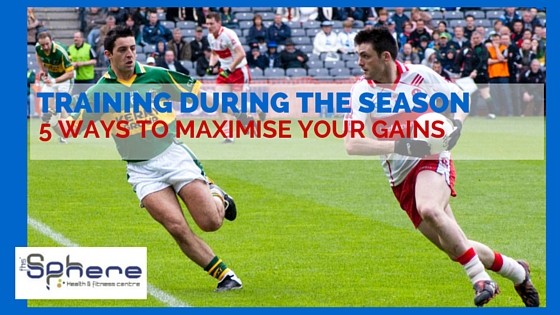At that point I see the injuries down the line and I see someone regressing not progressing.
The extras don’t have to be crazy high intensity balls to the wall sessions but they do need some purpose. Here is how you find it:-
1) Prevents Injury
The stronger athlete will always dominate. So why allow yourself to get weaker? Strength training should form the foundation of all athletic training with an equal emphasis (reflected in time spent) on recovery.
We know that strength needs to be kept up. It doesn’t take long for strength levels to fall. Somewhere between 7-14 days. You combine that with the pounding that the body takes combined with the accumulation of scar tissue and micro trauma and you face the problem of something going array down the line. All of this makes you weaker.
Try having a dead leg and feeling the lack of power you have in it after a few days. Yep – toddler levels.
Equally give me a full range set of squats to keep up correct muscle length and strength levels. Or a set of chins to balance the pressing demands around the shoulder. Or how about the 3 other limbs that can be worked in a hand injury SPEEDING UP THE REHABILITATION OF THE INJURED LIMB.
I always found the training with an injury was the best time to really devote time to my weak links and bring them up to speed.
Strength training needs to be maintained and if done correctly, improved, from week to week. How this is achieved is largely down the coach. There is no set plan. Just a set of principles that guide the program and the ‘art’ of seeing how much you can tolerate day-to-day.
One session I had for example was on a Monday morning. The boys had lost. The heads were down. So we went for breakfast. Not 10 sets of cleans. Come Tuesday the drive was back.
2) Improve Strength
Yep. Maintain is a dirty word in my gym. You can improve. You just have to know how to deliver stress. Some guys and girls can take it and come back for more. You are better off doing one exercise to the best of your ability than 10.
Others find sitting on a swiss ball mentally challenging.
My point is that you need to see what you can tolerate and let your numbers do the talking. They tend not to lie either.
Your squat, your remedial lifts, your standing vertical will give you objective markers as to how you are doing. Over 3-6 and 12 months they need to be going up. Otherwise – what is the point??
3) Not all training is balls to the wall
Which leads me onto this that work in the gym is just that – work in the gym. It is not pitch work or game time. So it has to compliment that not eat into it.
Your skills are the most important thing you possess. And time should be spent on this. But what if you are weak as piss and spend most of your time on the side lines?
A coach will perform a player profile with you and see where your weak links are and then as a player you can communicate this with your management.
If your lifestyle is poor and pop tart habit is eating up your recovery time then this needs to be addressed to maximize your ability to get the most out of your training.
Not all gym work therefore needs to be balls to the wall. Far from it. Some of the best sessions I have taken have been 30 minutes of intensely focused work. 1 exercise, not 10. Records smashed, not going through the motions. Team work, not 90 minutes of texting. Maybe a day of stretching is needed not the weights. If this pattern continues we then know that we need to look elsewhere for those all important ‘gainz’
4) Season Lulls – Create Habits
There will be times in your season when you are taking your foot off the gas.
Gym work keeps you in the game. In a good way. You know that feeling when you heading back to pre-season.
Yep – not much fun.
There are season lulls but make the most of them. Gym work fits this well.
5) Mental Toughness
Gym work builds character. As my old training buddy use to say
“Find a way to train not an excuse”
He was so right. The lads who duck out of the tough stuff outside of the pitch will do it to you on the pitch. FACT.
The team member who does things without every watching will be on your shoulder when you need him the most. That is built outside of pre-arranged times and team get togethers.
For me this boils down to life. You make excuse to take the easy road then you WILL do this outside of the training environment where everything is laid out at pre-set times, dates. What about when YOU need to do it. Can you?
6) Training Twice a Day is Excellent
If your nutrition and lifestyle is on point there is nothing to stop you doubling up with your training.
You can do it a few ways but the one that works well based off the research and observation is
- AM Strength and PM Club – following day OFF
- PM – 30 minutes of high quality strength – PM 2 – 1-2 hours later Pitch Work- following day OFF
Conclusions
I think a lot of this is time management and the need for self-approval. What are you like on both? Can you manage your time to set it aside for the extra bits and pieces you need to excel at your sport? What about needing a pat on your back every 2 seconds? Who cares. The only thing that mattered to me was a) the result and b) had i done my bit. And that certainly wasn’t left to 2.30 on a Saturday to find out.
John Lark is owner and founder of Sphere Fitness. A former international level rugby player and coach to high level athletes, John understands what it takes to excel at the top level.






